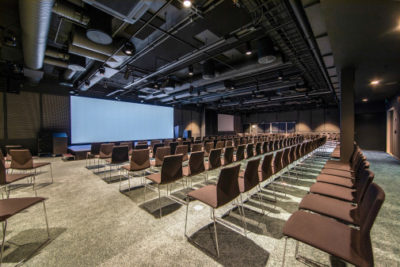The latest numbers from state welfare agency NAV show 83,000 fewer job seekers in June than in May, and Norway’s official unemployment rate fell to 4.8 percent. Hard-hit hotel- and travel businesses still fear the worst, though, and warn of a new wave of terminations later this summer.

“The numbers of people without jobs continue to fall, mostly because many people who were laid off have gone back to work,” stated Kjell Hugvik of NAV in a press release. “We’re also seeing a decline in the number of new layoffs.”
They hit as many as 400,000 nationwide when the Corona virus crisis forced the country to all but shut down in March. A gradual easing of closures and restrictions, especially within retailing and the restaurant branch, has prompted employers to call many of their laid-off employees back to work.
Business news service E24 reports that the number of full-time and part-time employees still out of work fell to 272,400 at the end of last month. That accounts for 9.6 percent of the total workforce, while 136,00 of them are registered by NAV as jobless, resulting in the 4.8 percent figure.
“That’s still high compared to unemployment before the Corona crisis,” Hugvik stated in a press release. Handelsbanken, however, noted that the new 4.8 percent unemployment rate fell from 6.4 percent in May, when an additional 45,500 had been registered as jobless. That signals a decline of 25 percent and an unemployment rate that remains lower than in many other countries.

Still suffering, however, are hotels in most Norwegian cities that remain nearly empty for the fourth month in a row. Airlines are also still mostly grounded or starting up only limited routes again, cruiseships are still in layup and tour operators have no tourists arriving in Norway. Even though Norway’s borders have begun to reopen to visitors from a few countries, business prospects this summer are gloomy indeed.
The large Scandic hotel chain stoked travel industry fears last week, when it sent out termination notices to around 1,000 laid-off employees, all of whom are now due to lose their jobs in August. Virke Reiseliv, the national employers’ organization for companies in the travel business, called the news “extremely serious” and “just the beginning of many terminations to come.”
“It’s sad to see that staffing is being permanently cut,” Astrid Bergmål of Virke Reiseliv, told news bureau NTB. “We have warned about terminations and bankruptcies and asked for concrete measures to avoid them.” She fears such measures won’t come until after the important summer travel season, which is characterized this year by a lack of international visitors from outside Europe who currently aren’t being allowed into Norway until late August at the earliest. Few intercontinental flights are running either.

Bergmål stressed that Norwegian hotels and travel businesses that cater to the international market face “big problems,” also those specializing in the conference market. Corona has cut their business down to almost nothing.
Scandic’s mass terminations, meanwhile, sparked anger among workers who noted how the hotel chain benefited from state financial assistance but nonetheless opted to cut staff. Newspaper Dagens Næringsliv (DN) reported that Scandic, the Nordic region’s largest, received NOK 129 million in state cash assistance from March through May.
“Scandic has received crisis packages and payroll support, they were satisfied with all the goodies and now resort to terminations,” fumed Helena Bozicevic, leader of the hotel workers’ organization at the Scandic Helsfyr hotel in Oslo. Bozicevic has worked at the hotel herself for 35 years, led the union for the past 20 and claims there’s no basis for the job cuts. She also claimed hotel management hadn’t contacted local employee leaders in advance of last week’s announcement.
‘Extremely demanding situation’
“We had no opportunity to say what we think about this,” she said, while Scandic management cited the sharp fall in hotel revenues since the Corona crisis began. DN has earlier reported that hotels in Norwegian cities have logged occupancy rates of only around 10 percent in April and May, while occupancy in June was also very low.
“This is an extremely demanding situation and a tough day for Scandic,” Asle Prestegard, Scandic’s acting chief executive, told DN. “We sympathize first and foremost with all the employees who’ll be affected by this.” He insisted that Scandic’s decision was “gradually forced upon us during the Corona crisis,” noting that the hotel company must adapt its staffing and costs to demand for its facilities and services. He also claimed the company has had “a good dialogue” with labour organizations at a national level throughout the duration of the crisis.
“We have feared mass terminations and they’re starting now,” Merethe Solberg, leader of the hotel and restaurant division in Oslo of trade union federation Fellesforbundet. In Scandic’s case the 1,000 planned terminations account for nearly 20 percent of the company’s 5,600 employees in Norway.
Calls rise to extend the lay-off period
Many other union leaders and politicians have been calling on the government to extend Norway’s layoff period to 52 weeks before terminations can click in. “It’s better that employees can remain laid off (furloughed) with the possibility of being called back in to work again,” Solberg told DN.
Labour Party leader Jonas Gahr Støre also supports extending the lay-off (called permittering in Norwegian) period, as do both Norway’s largest trade union confederation LO and Norway’s largest national employers’ organization NHO. They all warn of permanent job losses in Norway, especially within the travel, aviation, hotel and restaurant industries.
Critics, including several researchers at the Norwegian Business School BI, contend that extended lay-offs can be more costly for society in the long run. They argued in a commentary in DN last week that many previously profitable travel industry businesses now face much weaker prospects as a consequence of Corona, and may never see their business return to pre-Corona levels.
Restructuring may be needed
They also warn that it’s “improbable” that customers will flock back before a vaccine or better treatment is available, and that putting companies on the equivalent of publicly financed life-support may hinder needed restructuring of the travel business. Leaders of the Parliament ultimately voted against calling MPs in during the summer recess to vote on the issue of extended lay-offs.
The large Nordic Choice hotel chain, meanwhile, has also warned of looming job losses and terminations among the 3,500 of its workers currently laid off. Nordic boss Petter Stordalen, who has been busy opening a new hotel in Copenhagen, has supported extension of the lay-off period and thinks it will come.
Labour Miniser Torbjørn Røe Isaksen told DN that the lay-off period already has been extended through October and that the government is leaning towards further extension “if the situation in the labour market remains as demanding as it will be in August.”
NewsInEnglish.no/Nina Berglund

